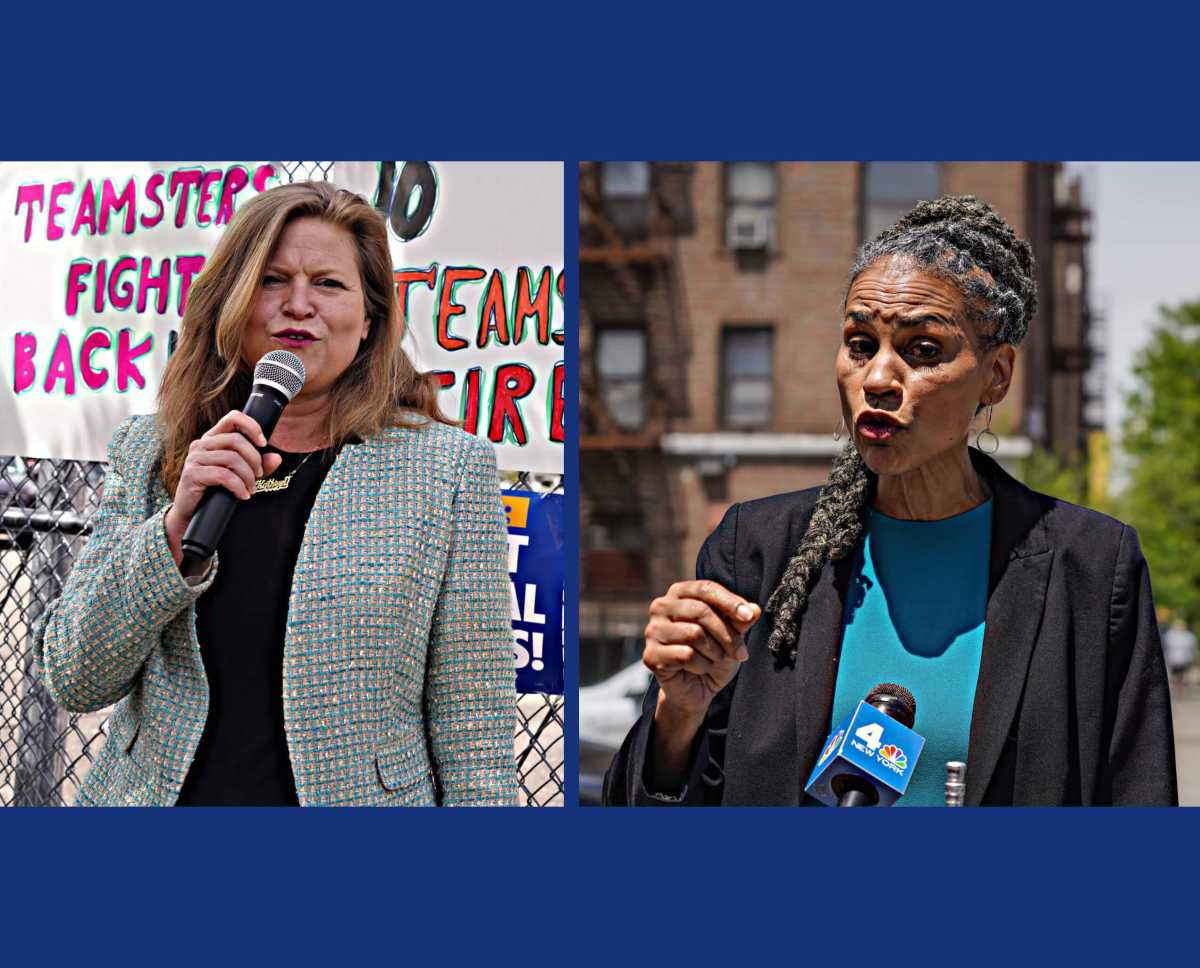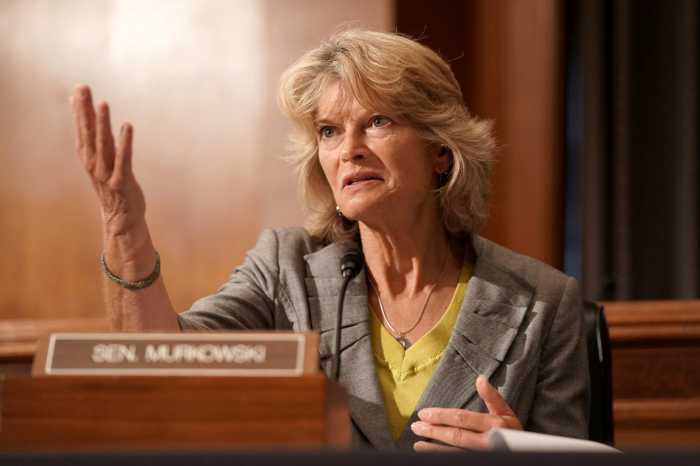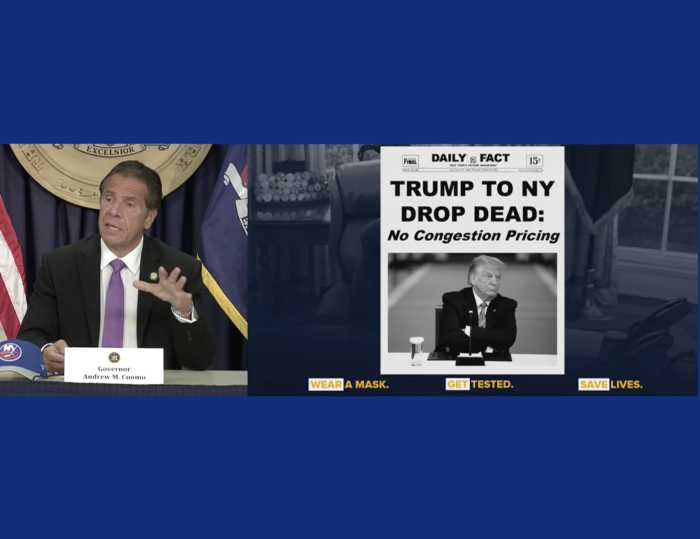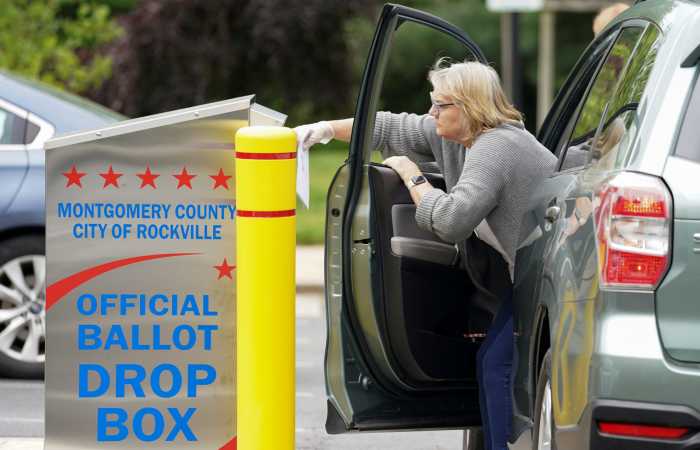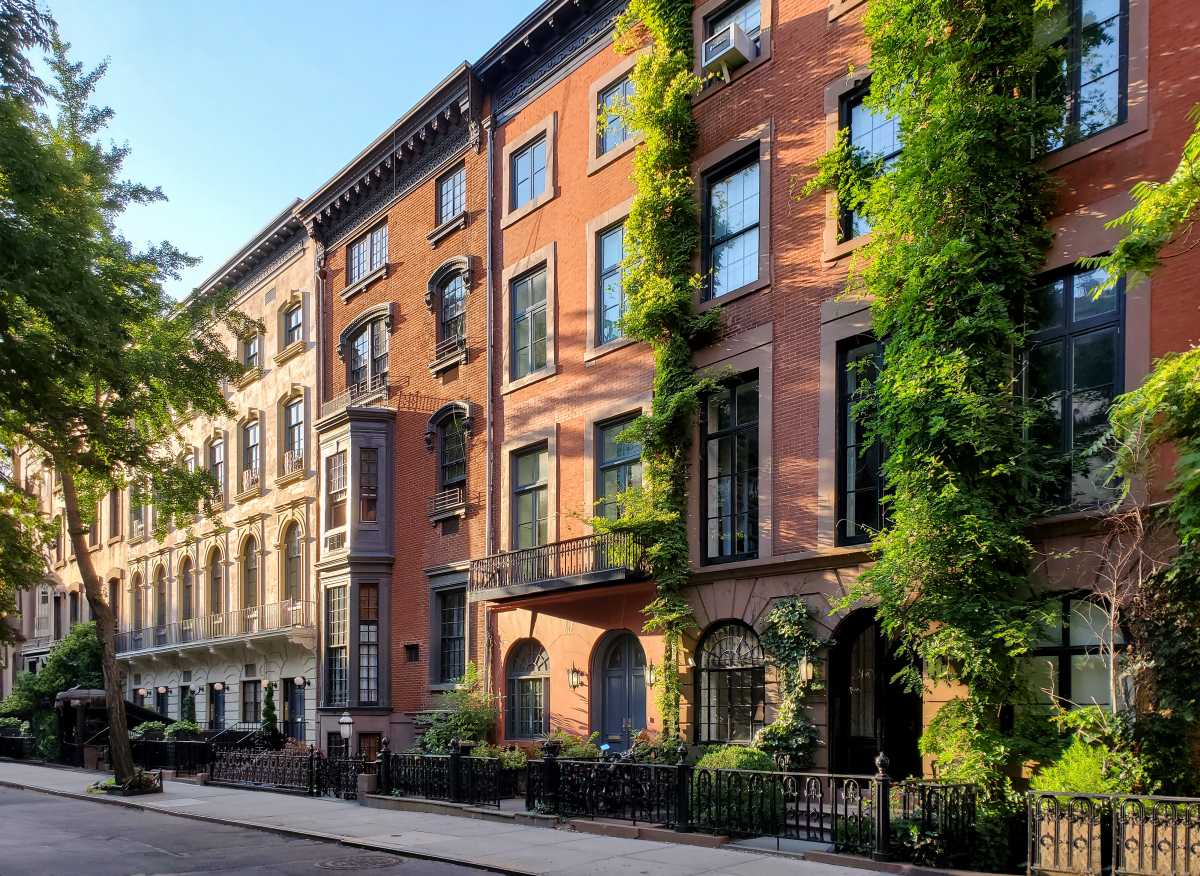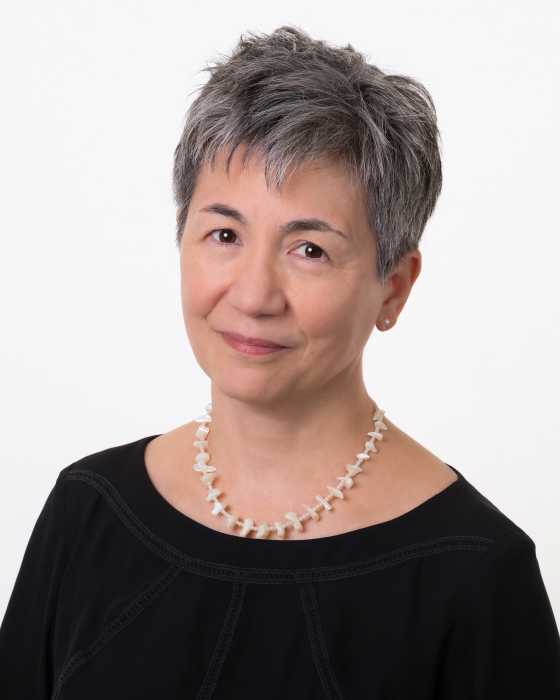Days after a Times Square shooting rattled a city already reeling from gun violence, mayoral hopefuls Kathryn Garcia and Maya Wiley announced public safety plans on Tuesday — though they seem to sharply differ in approach.
Garcia’s plan concentrates on stopping the flow of illegal guns into New York City by relying upon increased weapon buybacks and a refocused approach from the law enforcement community. Wiley’s vision, meanwhile, would “reimagine the NYPD” as a whole, cutting the department’s coffers by a billion dollars and shifting those resources toward alternative programs such as combatting poverty.
With the NYPD reporting a 166% spike in shootings across the five boroughs so far in 2021, Garcia stressed that the city’s recovery from the COVID-19 pandemic is directly linked to strong public safety. To that end, her plan — which the former sanitation commissioner announced outside Brooklyn’s 90th Precinct — would focus on getting guns off the streets and expediting the prosecution of individuals arrested on gun felonies.
In one part of her plan, Garcia seeks to expand the NYPD’s gun buyback program — already in place at 10 precincts across the city — in which the department provides $200 cash payments to individuals who turn in a firearm, no questions asked.
Garcia would increase those payments tenfold — from $200 to $2,000 a weapon — and bring the buyback program to more NYPD precincts across the city to further encourage participation. It also serves as something of an economic stimulus for working families in need of relief, the candidate added.
Moreover, Garcia pledged to work with the NYPD and other law enforcement agencies to take illegal guns off the streets; prioritize gun cases in the court system; increase the NYPD Gun Violence Suppression Division to track down and dismantle illegal gun smuggling and sale operations; boost patrols in areas hardest hit by gun violence; introduce an interdisciplinary approach toward combating subway crime with police and mental health workers; and enforcing a zero tolerance drug dealing policy near schools.
“All New Yorkers have a right to live in peace, not to be terrorized by street crime and ignored by gun manufacturers whose products are brought to our city in defiance of our laws and our values,” Garcia said. “This rise that New Yorkers are experiencing in gun violence must end. I am the only candidate with both the plans to stop it and the experience to make those plans a reality.”
On the opposite end of the spectrum, Wiley seeks a more transformational plan to both combating crime and reforming the NYPD — one which, she said Tuesday, would also combat institutional racism and poverty all across New York.
“There is no leading New York City out of the crisis we’re in without cleaning up policing and ensuring it protects our communities. I have put forward a unified, comprehensive and humane plan to policing and public safety,” Wiley said. “My plan to transform policing will create true civilian oversight of the NYPD and develop alternatives to policing that can more effectively address New York City’s most pressing challenges.”
Wiley’s plan, in many respects, echoes some of the calls for police reform made last spring during the demonstrations following the Minneapolis police killing of George Floyd. She seeks to create a Commission on Public Safety Oversight and Accountability to make binding policing policy decisions as well as a Compstat for Public Safety Office to identify police practices that are inherently biased and limit them.
The plan also calls for a two-year freeze on upcoming NYPD and Corrections Department cadet classes, with the funds for those classes shifted to a universal community care income program. The freeze will also allow for the NYPD to institute “fundamental policy and rules changes” and reshape future training.
Wiley also vowed to build upon “existing strategies” to repair and strengthen police-community relations and to appoint a reform-minded civilian as the city’s next police commissioner.
The candidate’s plan also seeks to further empower the Civilian Complaint Review Board and stop the NYPD’s final authority over disciplinary actions against its officers.
One thing that the two candidates’ plans seemed to agree on was taking a tougher approach to disciplining officers who break the law or policy, and hold them accountable.
Garcia vowed to be a “tough but fair” mayor who would bring about a “culture of accountability” at the NYPD that includes firing workers who broke the rules. Wiley, meanwhile, said she would seek to renegotiate the city’s contract with the Police Benevolent Association and “end the union’s oversized influence and the Department’s evasion of accountability.”



